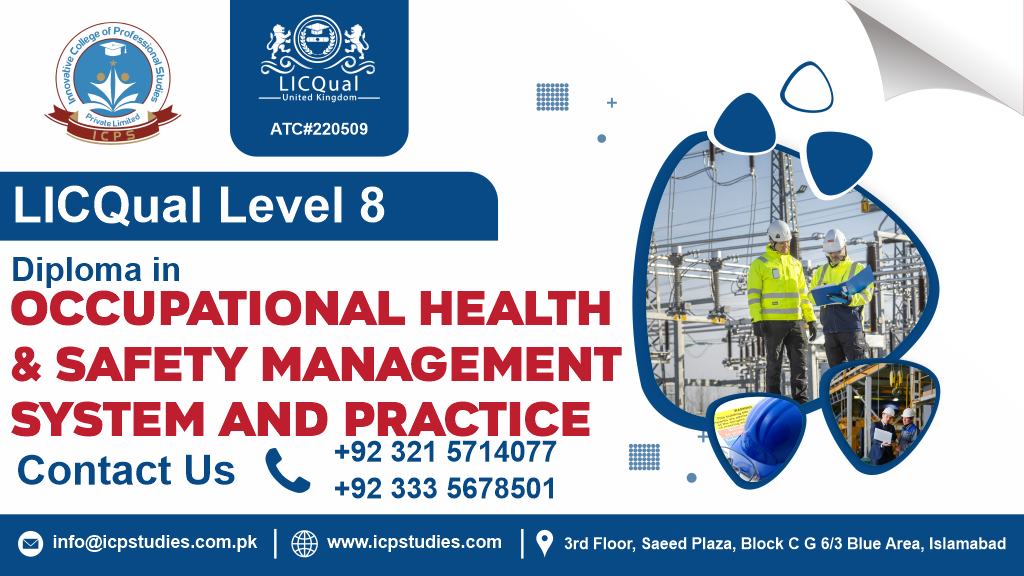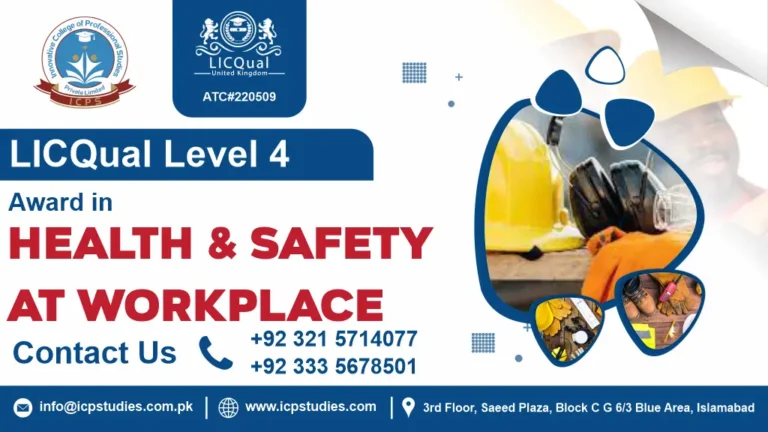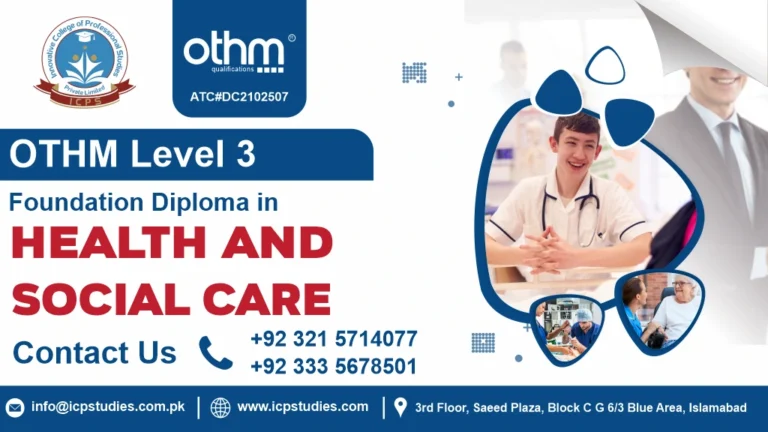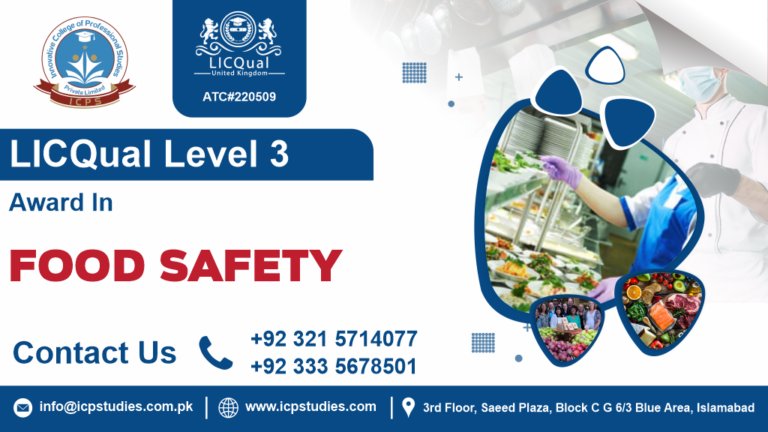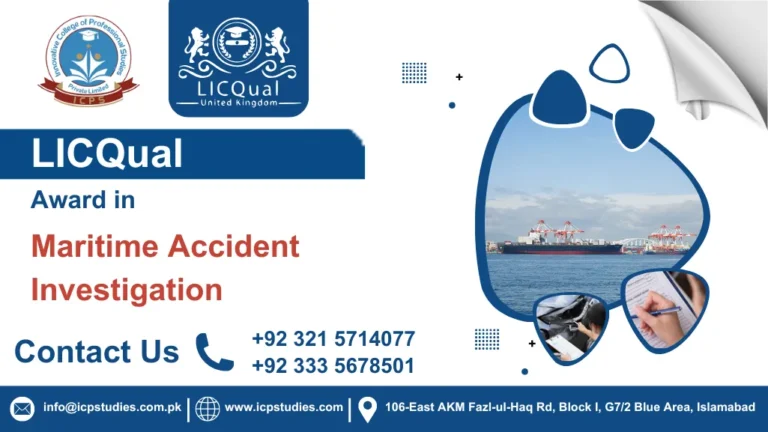Our Level 8 Diploma program offers an in-depth exploration of advanced concepts, methodologies, and best practices in occupational health and safety management. From strategic leadership to risk assessment, you’ll gain the expertise needed to excel in senior management roles.
LICQual UK is a globally recognized accreditation body known for its commitment to excellence in education and training. By earning your Level 8 Diploma, you’ll join a prestigious network of professionals and gain recognition for your expertise worldwide.
Whether you’re looking to advance into executive leadership roles, consult internationally, or lead health and safety initiatives for multinational corporations, this diploma equips you with the strategic acumen and practical skills to succeed.
Our program emphasizes practical application of concepts through case studies, simulations, and real-world projects. You’ll gain hands-on experience and develop practical skills that are directly applicable to your role as a health and safety leader.
Don’t wait any longer Enroll now andJoin the ranks of industry leaders who are shaping the future of workplace safety with the LICQual UK Level 8 Diploma.
All About Level 8 Diploma in Occupational Health & Safety Management System and Practice
Course Overview
The LICQual UK Level 8 Diploma in Occupational Health & Safety Management System and Practice is an advanced qualification designed for seasoned professionals who are established in the field of workplace safety and are seeking to elevate their expertise to the highest level. This diploma program provides an extensive exploration of complex concepts, strategic frameworks, and international best practices in occupational health and safety management.
Participants delve into advanced leadership theories and practices tailored to the field of occupational health and safety. Emphasis is placed on developing visionary leaders who can drive organizational change, foster a culture of safety, and influence stakeholders at all levels.
The program offers an in-depth examination of sophisticated risk assessment techniques and proactive risk management strategies. Participants learn to identify, assess, and mitigate occupational health and safety risks effectively, minimizing the potential for workplace incidents.
Participants gain an understanding of international health and safety regulations, standards, and guidelines. They learn how to ensure compliance with regulatory requirements, navigate legal frameworks, and manage risks in diverse global environments.
Comprehensive emergency response planning and crisis management protocols are addressed. Participants learn to develop robust emergency response plans, implement crisis management strategies, and minimize disruptions in the workplace during emergencies.
The LICQual UK Level 8 Diploma in Occupational Health & Safety Management System and Practice is a prestigious qualification that empowers professionals to become leaders in the field of workplace safety at the highest level. Through advanced education, strategic leadership development, and practical application, participants are equipped to address complex challenges, drive organizational change, and promote a culture of safety and sustainability within their organizations.
Study Units
Learning Outcomes
Here are the outcomes corresponding to each of the study units:
- Safety Culture, Sustainability, and the Global Effect on Performance:
- Outcome: Participants will develop an understanding of safety culture and its impact on organizational performance. They will learn to promote a positive safety culture, integrate sustainability principles into health and safety practices, and adapt strategies to align with global trends and standards.
- Risk-based Safety Systems Management:
- Outcome: Participants will gain proficiency in managing risk-based safety systems. They will learn to identify, assess, and prioritize risks, develop risk management strategies, and implement systems to monitor and mitigate risks effectively, ensuring the safety of employees and the organization.
- Digital Technologies and Incident Investigation:
- Outcome: Participants will explore the use of digital technologies in incident investigation and management. They will learn to leverage technology tools and data analysis techniques to conduct thorough incident investigations, identify root causes, and implement preventive measures to minimize recurrence.
- Continuous Quality Improvement Initiatives and Accreditation:
- Outcome: Participants will develop skills in implementing continuous quality improvement initiatives and obtaining accreditation in occupational health and safety management. They will learn to assess performance, identify areas for improvement, and implement quality management systems to enhance organizational effectiveness and compliance.
- Development as a Strategic Manager:
- Outcome: Participants will enhance their strategic management capabilities in the context of occupational health and safety. They will learn advanced leadership skills, strategic planning processes, and decision-making techniques to drive organizational change and achieve long-term objectives.
- Principles of Health Hazard Evaluation, Monitoring, and Control:
- Outcome: Participants will gain expertise in evaluating, monitoring, and controlling health hazards in the workplace. They will learn to identify potential health hazards, assess exposure risks, implement monitoring systems, and develop control measures to protect the health and well-being of employees.
These outcomes collectively equip participants with the knowledge, skills, and tools needed to excel as strategic leaders in the field of occupational health and safety. Through practical application and theoretical understanding, participants are prepared to address complex challenges, drive organizational change, and promote a culture of safety and sustainability within their organizations.
Admission Criteria
The entry requirements for the LIQual Level 7 International Diploma in Occupational Health & Safety typically include:
- Educational Background:
- Applicants are usually required to hold a relevant undergraduate degree or equivalent qualification from a recognized institution. This may include degrees in occupational health and safety, environmental health, public health, engineering, or related fields.
- Work Experience:
- While not always mandatory, many programs prefer candidates with substantial work experience in occupational health and safety, risk management, or related fields.
- Typically, candidates are expected to have a minimum of five to eight years of relevant work experience, preferably in managerial or leadership roles within occupational health and safety.
- Professional Qualifications:
- Some programs may require applicants to hold specific professional certifications or qualifications in occupational health and safety, such as NEBOSH (National Examination Board in Occupational Safety and Health) diplomas, Certified Safety Professional (CSP) credentials, or equivalent certifications.
- English Language Proficiency:
- Since the course materials and assessments are often conducted in English, applicants may be required to demonstrate proficiency in the English language.
- This can be proven through standardized tests such as the TOEFL (Test of English as a Foreign Language) or IELTS (International English Language Testing System), or through other recognized language proficiency assessments.
- References or Recommendations:
- Applicants may be asked to provide letters of recommendation or references from employers, supervisors, or academic instructors who can attest to their suitability for the program. These references may speak to the applicant’s academic achievements, work experience, leadership qualities, and relevant skills.
- Statement of Purpose or Personal Statement:
- Some institutions may require applicants to submit a statement of purpose or personal statement outlining their reasons for applying to the program, career goals, relevant experiences, and how they believe the program will benefit them professionally.
- Interview:
- Depending on the institution, applicants may be required to participate in an interview as part of the admissions process. The interview may assess the applicant’s suitability for the program, their understanding of occupational health and safety concepts, their leadership abilities, and their motivation for pursuing further education in the field.
- Additional Requirements:
- Depending on the program and institution, there may be additional requirements such as completion of prerequisite courses, submission of a resume or curriculum vitae (CV), or completion of a pre-admission assessment or test.
Prospective students are advised to carefully review the entry requirements outlined by the institution offering the course and ensure that they meet all criteria before applying.
Ideal Candidate
This course is ideal for:
- Health and Safety Managers and Directors:
- Individuals responsible for overseeing health and safety practices within organizations, including health and safety managers, directors, coordinators, or consultants, who are seeking to enhance their strategic leadership skills and global perspective.
- Occupational Health and Safety Professionals:
- Experienced occupational health and safety practitioners, consultants, advisors, or regulatory compliance specialists who are looking to deepen their knowledge, expand their skill set, and stay current with global best practices and standards.
- Risk Management Specialists:
- Professionals involved in risk assessment, risk management, or EHS (Environmental Health and Safety) management who want to advance their expertise in managing complex occupational health and safety risks and implementing effective risk-based safety systems.
- Corporate Leaders and Executives:
- Senior executives, corporate leaders, and board members who recognize the strategic importance of prioritizing health and safety within their organizations and want to gain insights into global trends and best practices in occupational health and safety management.
- Government Officials and Policy Makers:
- Government officials, policymakers, and regulators involved in setting occupational health and safety policies and regulations at the national or international level who seek to enhance their knowledge and expertise in global health and safety standards.
- Industry Specialists:
- Professionals working in specific industries or sectors such as construction, manufacturing, healthcare, oil and gas, transportation, or mining, where occupational health and safety risks are prevalent and require specialized expertise.
- Academics and Researchers:
- Academics, researchers, and educators in the field of occupational health and safety who are interested in advancing their knowledge, conducting advanced research, and contributing to the development of best practices in the field.
This course is designed to meet the needs of experienced professionals who are committed to driving excellence, innovation, and continuous improvement in occupational health and safety management at the highest level. Whether you are looking to advance your career, expand your professional network, or make a meaningful impact in the field, the LICQual UK Level 8 Diploma provides the advanced knowledge, skills, and credentials to help you achieve your goals.
FAQs about Level 8 Diploma in Occupational Health & Safety Management System and Practice

